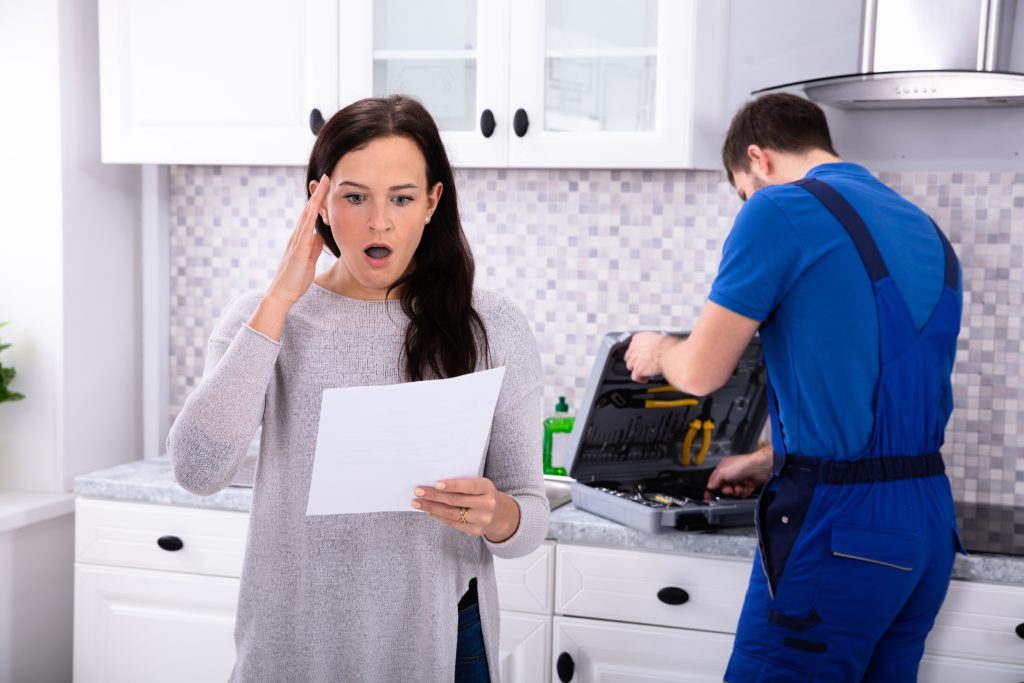The Reddit post by user “capnpetch” ignited a firestorm of responses, detailing a frustrating encounter with a plumber who attempted to exploit the homeowner’s perceived lack of plumbing knowledge. The homeowner, suspecting a minor issue with the bathtub spout’s valve cartridge, a part previously replaced, contacted a recommended plumber. Despite the homeowner providing the specific part number and expressing their belief in the simplicity of the repair, the plumber, upon arrival, declared the part a “special order” and quoted an exorbitant $970 fee. This price was drastically inflated considering the homeowner’s prior experience with the repair and readily available online resources demonstrating the five-minute process using common tools. The plumber’s attempt to justify the cost by citing a warranty and potential complications was met with accusations of dishonesty, prompting the homeowner to dismiss the plumber and purchase the $14 part themselves. Within minutes of returning home, the homeowner successfully completed the repair, reinforcing the suspicion that the plumber had intended to take advantage of their assumed naiveté.
This incident serves as a stark reminder of the prevalence of exploitative pricing practices within various service industries. The plumber’s tactic of inflating the price by claiming the readily available part was a “special order” is a common ploy used by unscrupulous contractors seeking to maximize profits at the expense of unsuspecting customers. The homeowner’s proactive approach of researching the repair process and cost beforehand armed them with the knowledge to challenge the plumber’s inflated quote and avoid being overcharged. This incident highlights the importance of consumer vigilance and the need to be informed about potential repair costs before engaging a service professional.
The Reddit community rallied behind the homeowner, urging them to expose the plumber’s deceptive practices through online reviews and warn others about this predatory behavior. Such public exposure can serve as a powerful deterrent against similar scams and empower other consumers to avoid falling victim to unscrupulous contractors. Sharing experiences like these online creates a platform for collective consumer protection and holds businesses accountable for their pricing practices.
Unfortunately, the homeowner’s experience is not an isolated incident. Overpriced parts, unnecessary repairs, vague estimates, and high-pressure tactics are common hallmarks of repair scams targeting vulnerable consumers. Dishonest contractors often rely on the assumption that customers lack the knowledge or inclination to question pricing or seek second opinions. This reliance on consumer passivity underscores the importance of proactive research and questioning any quote that seems excessive or unreasonable. Consumer protection resources, like the Better Business Bureau and state attorney general’s offices, offer avenues for recourse and investigation of suspected fraud.
The deceptive pricing extends beyond home repairs and permeates various consumer transactions, as highlighted by a viral incident involving unexplained charges on a restaurant bill. These hidden fees and inflated costs prey on the assumption that most customers will not scrutinize their bills before paying. This underscores the crucial need for consumers to carefully review all charges before making any payment, regardless of the industry. Vigilance and attention to detail can help prevent unknowingly accepting inflated prices or hidden fees.
To protect themselves from potential repair scams and dishonest pricing, consumers should adopt a proactive approach. Obtaining multiple estimates from different contractors provides a comparative benchmark for pricing and helps identify unusually high quotes. Researching the cost of parts online empowers consumers to challenge claims of “special orders” or inflated part prices. Finally, resisting pressure tactics and refusing to commit to a repair under duress provides time for thoughtful consideration and consultation with other professionals if necessary. Empowered consumers, equipped with information and a healthy dose of skepticism, are less likely to become victims of exploitative pricing practices.










